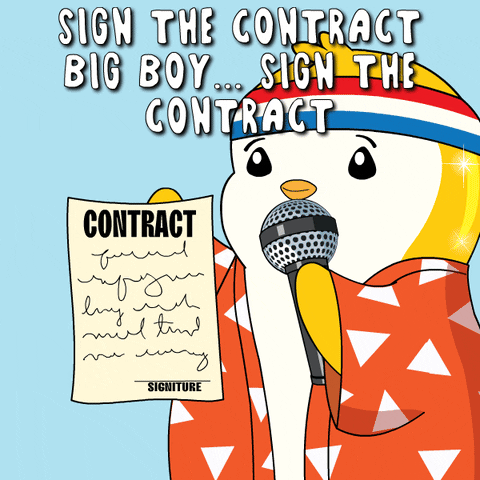- VanYorker
- Posts
- What type of Negotiator Are You?
What type of Negotiator Are You?
Welcome to the last day of our 5-Day Negotiation Strategies Email Bonus
Understanding Different Types of Negotiators: Simplified for Practical Use
Traditionally, negotiators are often classified into five types: Competitive, Collaborative, Accommodating, Avoidant, and Compromising. While these categories offer a detailed view of negotiation styles, they can sometimes feel complex and overwhelming. To make it easier to understand and apply in real-world situations, we’ve distilled these into three practical categories that reflect the core approaches most negotiators take. These simplified types—The Aggressor, The People-Pleaser, and The Pragmatist—allow you to quickly identify who you’re dealing with and how to adapt your strategy for success. Let’s dive into these categories.

1. The Aggressor
Key Traits:
Win-at-all-costs mentality: Aggressors see negotiation as a battle and aim to come out on top.
They’re competitive, assertive, and often push hard to get the best deal for themselves.
Aggressors focus heavily on maximizing their own gain, sometimes at the expense of the relationship.
Strengths:
They are determined and effective at securing favorable terms for themselves, pushing the boundaries of negotiation to their advantage.
Challenges:
Aggressors often miss opportunities for collaboration or mutually beneficial deals. Their combative style can also strain or damage relationships over time.
How to Deal with an Aggressor:
Stay calm and don’t be intimidated by their assertive tactics. They thrive on pushing boundaries, so it’s important to stand your ground.
Be clear and direct about your needs. Aggressors respect strength and clarity, so confidently presenting your position helps balance the dynamic.
Offer alternatives that give them the sense of winning, while still allowing you to achieve your objectives. A win-win solution framed correctly can appeal to their competitive nature.
Example: If someone keeps increasing demands or refuses to compromise, they’re likely an Aggressor. In this case, you’ll need to remain firm while offering creative solutions that allow them to feel they’ve come out ahead.

2. The People-Pleaser
Key Traits:
People-Pleasers prioritize maintaining relationships and avoiding conflict over securing the best deal.
They are highly accommodating, often giving in to the other party’s requests without much resistance.
Their primary goal is to keep the negotiation friendly, even if that means they sacrifice their own needs.
Strengths:
They are cooperative and excellent at building and maintaining positive relationships.
Their flexibility can help move negotiations along when there’s a risk of getting stuck in disputes.
Challenges:
People-Pleasers often sacrifice too much, leading to imbalanced deals that don’t fully meet their needs.
Their desire to avoid conflict can prevent them from advocating for their own interests, leaving them unsatisfied with the final agreement.
How to Deal with a People-Pleaser:
Encourage them to express their needs. Ask questions to make sure their interests are being considered in the deal.
Be fair and balanced in your approach. Avoid exploiting their accommodating nature, and aim for a solution that benefits both parties.
Reassure them that the relationship won’t be harmed by discussing more difficult points. This will help them feel comfortable standing up for their interests.
Example: If a person quickly agrees to your terms without much resistance or offers concessions too easily, they’re likely a People-Pleaser. Take care not to push them too hard, and encourage them to share their own priorities.

3. The Pragmatist
Key Traits:
Pragmatists are practical negotiators who focus on finding solutions that work for both sides.
They value efficiency and fairness, and aim to wrap up negotiations quickly with a reasonable outcome for both parties.
They are willing to compromise, but not at the expense of getting what they need.
Strengths:
Pragmatists are skilled at resolving negotiations swiftly and avoiding unnecessary conflict.
They’re focused on practical outcomes, ensuring that both sides walk away with a fair deal.
Challenges:
While they aim for balance, Pragmatists may sometimes settle too quickly, potentially leaving more value on the table.
In complex negotiations, their desire to move forward efficiently might lead them to overlook deeper opportunities for creativity or collaboration.
How to Deal with a Pragmatist:
Be straightforward and avoid excessive posturing or dramatics. Pragmatists appreciate clear communication and efficiency.
Present win-win solutions that benefit both sides. They are open to compromise as long as it makes sense for both parties.
Use data and logic to support your position. Pragmatists value well-reasoned arguments backed by facts, which will make your offer more compelling.
Example: If someone focuses on getting to a fair deal quickly without pushing extreme demands, you’re likely dealing with a Pragmatist. They’ll appreciate a direct and reasonable approach.
Quick Recap:
Aggressor: Competitive, assertive, and wants to win. Stay firm and offer creative solutions that allow them to feel they’ve gained something valuable.
People-Pleaser: Accommodating and relationship-focused. Encourage them to share their needs and aim for a balanced outcome that benefits both sides.
Pragmatist: Practical and solution-oriented. Be direct and present win-win solutions backed by logical reasoning.
💛 Thank you for taking the time to read! If you found this helpful and want more negotiation tips and strategies, feel free to follow me on social media for regular updates and insights.
Reply